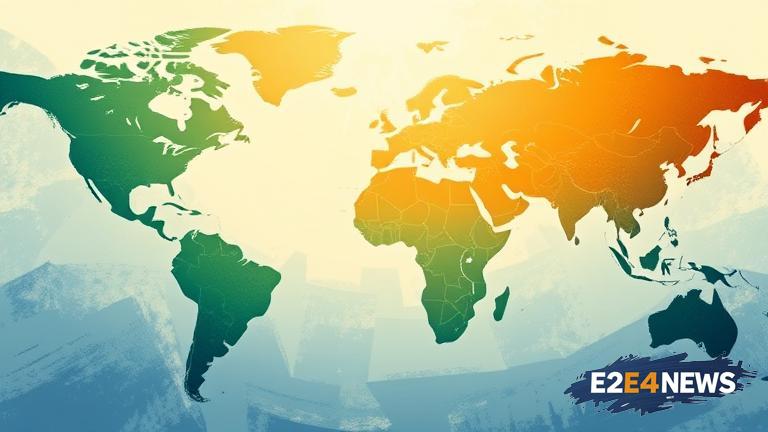The global economy is undergoing a profound transformation, driven by the increasing complexity of international trade agreements and the rising tensions between major world powers. The recent developments in global trade have far-reaching implications for businesses, economies, and societies around the world. The ongoing trade wars between the US and China, for instance, have resulted in significant tariffs and trade restrictions, affecting various industries and supply chains. The European Union, on the other hand, has been actively engaged in negotiating new trade agreements with other countries, aiming to strengthen its economic position and promote free trade. The Comprehensive and Progressive Agreement for Trans-Pacific Partnership (CPTPP) is another significant trade agreement that has been signed by 11 countries, including Japan, Australia, and Canada. This agreement aims to reduce trade barriers and promote economic cooperation among its member countries. The impact of these trade agreements on the global economy is multifaceted. On one hand, they have the potential to increase trade volumes, promote economic growth, and create new job opportunities. On the other hand, they also pose significant challenges, such as increased competition, job displacement, and environmental concerns. The rise of protectionism and nationalism in some countries has also led to a decline in international cooperation and a increase in trade tensions. The World Trade Organization (WTO) has been playing a crucial role in promoting free trade and resolving trade disputes among its member countries. However, the organization faces significant challenges, including the rise of protectionism and the increasing complexity of international trade agreements. The global economy is also witnessing a significant shift towards digital trade, with the increasing use of e-commerce platforms, digital payments, and other digital technologies. This shift has the potential to increase trade volumes, promote economic growth, and create new job opportunities. However, it also poses significant challenges, such as cybersecurity risks, data protection concerns, and the need for new regulations and standards. The impact of international trade agreements on the environment is also a significant concern. The increased trade volumes and economic growth resulting from these agreements can lead to increased greenhouse gas emissions, pollution, and other environmental problems. Therefore, it is essential to incorporate environmental considerations into trade agreements and promote sustainable trade practices. The role of international organizations, such as the WTO, the International Monetary Fund (IMF), and the World Bank, is crucial in promoting free trade, resolving trade disputes, and addressing the challenges posed by international trade agreements. These organizations provide a platform for countries to negotiate trade agreements, resolve trade disputes, and address global economic challenges. The future of international trade agreements is uncertain, with the rising tensions between major world powers and the increasing complexity of global trade. However, one thing is clear: the global economy will continue to evolve, and international trade agreements will play a crucial role in shaping its future. The need for cooperation, dialogue, and negotiation among countries is essential to promote free trade, resolve trade disputes, and address the challenges posed by international trade agreements. The private sector also has a significant role to play in promoting free trade and addressing the challenges posed by international trade agreements. Businesses can promote sustainable trade practices, invest in digital technologies, and engage in international trade agreements to increase trade volumes and promote economic growth. The civil society also has a crucial role to play in promoting free trade and addressing the challenges posed by international trade agreements. Non-governmental organizations (NGOs) and other civil society organizations can promote sustainable trade practices, raise awareness about the impact of trade agreements on the environment and society, and engage in international trade agreements to promote free trade and resolve trade disputes. In conclusion, the global economy is undergoing a significant transformation, driven by international trade agreements and geopolitical tensions. The impact of these agreements on the global economy is multifaceted, with both positive and negative consequences. The need for cooperation, dialogue, and negotiation among countries is essential to promote free trade, resolve trade disputes, and address the challenges posed by international trade agreements. The private sector and civil society also have a significant role to play in promoting free trade and addressing the challenges posed by international trade agreements.
